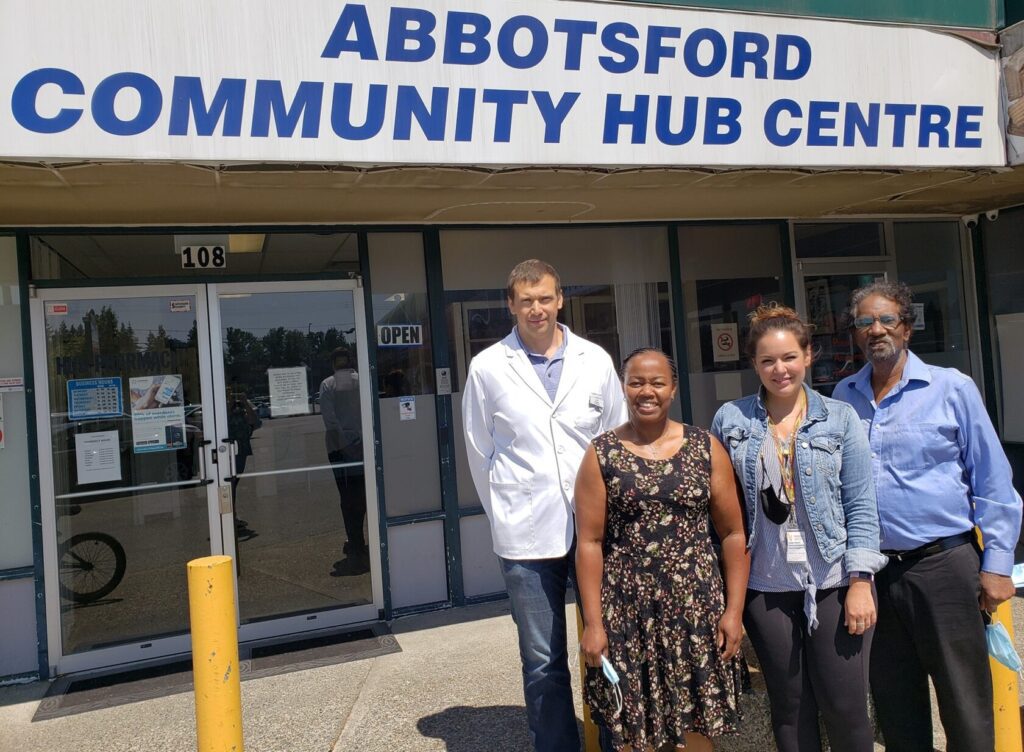
Amber Steward is a dedicated Medical Outreach and Referral Engagement worker for Phoenix Society. For #WorldHepatitisDay we wanted to ask her some questions and share them with our readers.
Why did you choose to work in the field specific to HepC outreach?
Since beginning my studies in the social work field I have always been drawn to the development of a more integrated health and social care service. There has always been a missing link between those experiencing multiple barriers with the treatment and assistance to medical services. As the MORE worker at Phoenix Society, I get the opportunity to work as a liaison between a team of Nurse Practitioners, Specialists and Pharmacists to provide our clients collaborative care. By forging a team, using patient centreed care we are able to coordinate and make services accessible when typically barriers would normally affect their ability to maintain and adhere to their care and drug plans.
This opportunity enables me to forge new paths, particularly in social work in the health care field.
Can you please explain the demographic you serve?
Although HepC is highly stigmatized to drug users and those working in sex trades, I can attest to the fact that this virus does not discriminate. During my employment I have worked with those who have emigrated from countries of high prevalence, to those who may have been exposed to dirty needles while being tattooed or received blood transfusions before blood was screened.
Given that it may take years for symptoms to be felt or diagnosed, the main demographic in which I have been working with is a vastly increased client group of the aging population and disabled peoples.
How long have you worked in this role and with the organization in general?
I have been a member of the Phoenix Family since 2020 and was hired on as the MORE – Medical Outreach and Referral Engagement worker and continue with this position today.
What is your fondest memory in your role?
There is no feeling greater than working closely with someone who has contracted the HepC virus and being able to inform them that after years of worry, shame, and guilt that they are now cured and free from the restraints they felt encumbered by and can lead a completely normal life.
What advice do you have for people who have HepC?
Relax and Seek support.
Living with hep C and all the other demands of life is stressful. We all know living with constant stress can affect your whole body, including and most importantly your immune system. Limiting stress is key to managing any chronic disease.
Finding supports in your community could range from receiving clear information, referral to any emotional and financial supports (support groups, peer support initiatives) to a more substantial and specialised role providing support during and after treatment whether that be by providing transportation to and from appointments, help in following drug specific treatments, help with food scarcity, even to housing and employment.
We are here for you, you are not alone.
When/why should people get tested?
Anyone between the ages of 18 to 79 should be tested for HepC. If left untreated, HepC can lead to fibrosis, cirrhosis and even liver cancer, but for most people the effects tend to be chronic and debilitating rather than fatal. Because HepC is considered asymptomatic you could be living with the infection without knowing about it.
Anything else you would like to add.
When someone learns about contracting the HepC virus it is a paradoxical time when they are most likely to require support, but may feel isolated and alone. It’s up to all of us to destigmatize blood borne infections, to open our minds and educate ourselves. HepC is curable and due to the stigmas placed on the virus people do not seek treatment, we all can do better.
